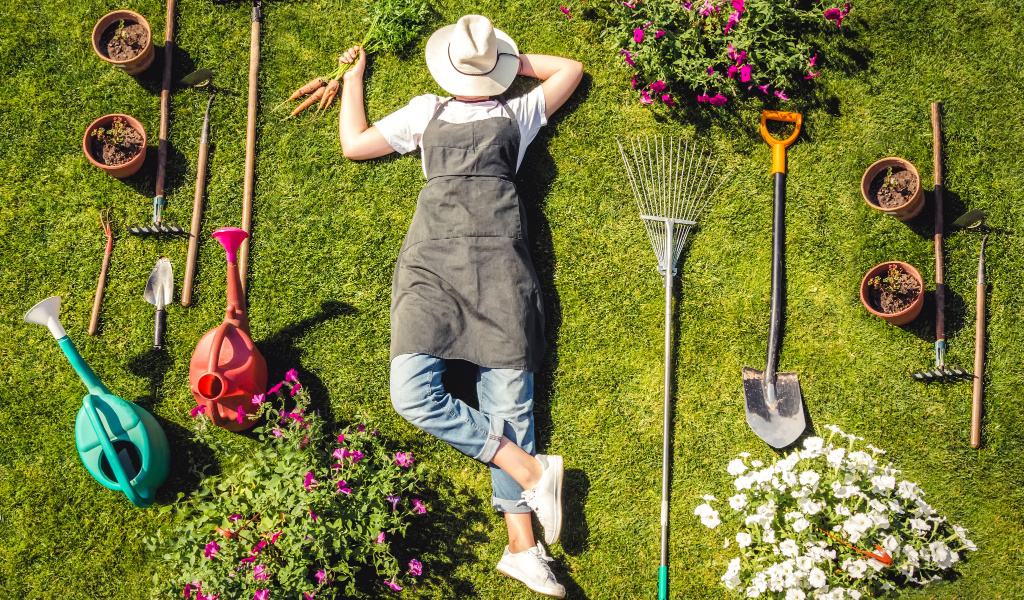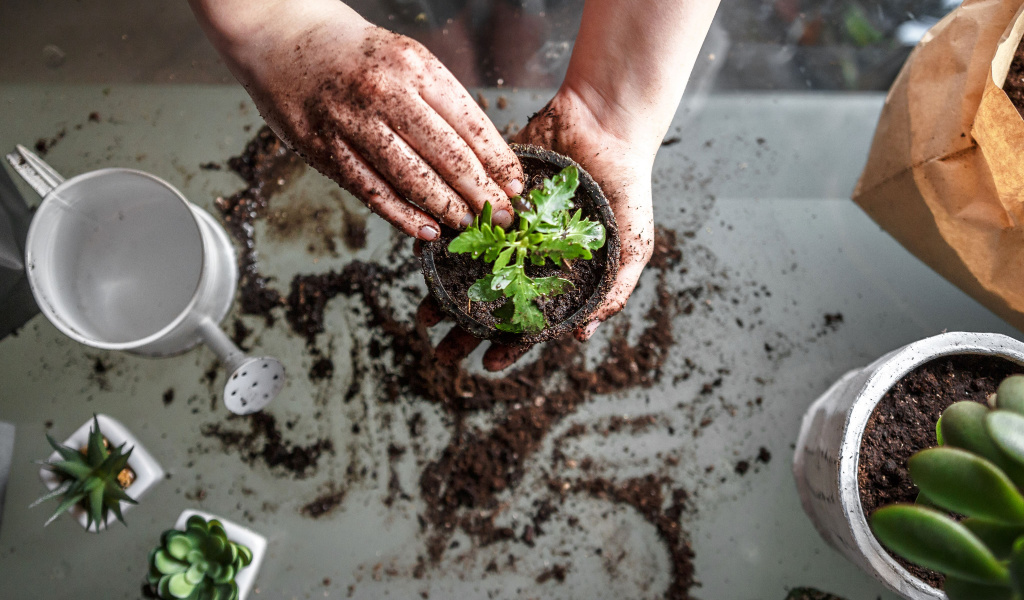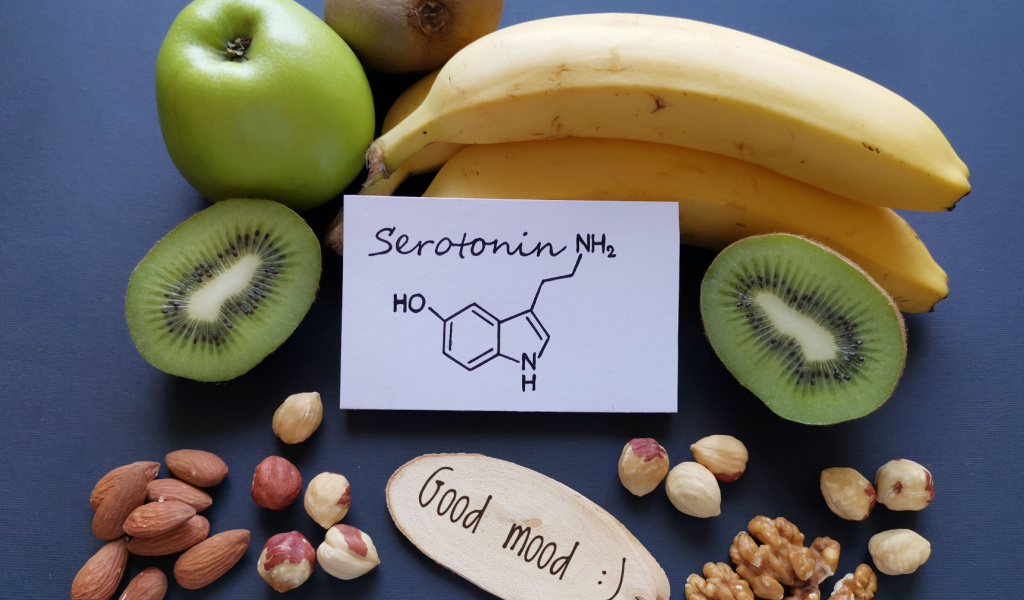Gardening can be a relaxing hobby as well as an effective way to bring some much-needed nature therapy into your daily life. Anyone who has a garden, big or small, knows that it’s a pleasure to spend time nurturing and bringing something to life that is mutually beneficial. Best of all, gardening is a sustainable habit that helps you do your part in giving back against the depletion of natural resources.

But those of us who aren’t blessed with a green thumb know that having a garden at home isn’t the easiest thing to do. It can be tough to identify what plants need and one wrong move can lead to months of hard work literally withering away. Plus, you don’t want to do the planet more harm by going about it the wrong way.
Fret not, because here are 5 of our best ideas for creating and maintaining a sustainable garden.
Use Organic Fertilizers and Pesticides
The first and foremost thing to be noted in sustainable gardens is that it must be chemical-free. It is vital that you avoid hazardous chemicals, particularly if you are cultivating your own food. Such chemicals provide only short-term benefits while causing more damage to the environment. While it seems to be the most convenient way to go, the reality is that they slowly and steadily pollute your soil by making it either too acidic or too alkaline. Plus, they also pollute the underground water.
Alternatively, organic gardening appears to be safe, natural, and economical. Making use of organic fertilizers offers the best nutrients for effective plant growth and also enhances the quality of the soil.
In case of any insects and pests hurting your plants, or the occurrence of plant diseases, there are safe and organic pesticides you can use to treat them. These organic pesticides ensure complete treatment without harming your plants in a productive and sustainable approach.
It is always better to opt for organic fertilizers and pesticides over synthetic, chemical-based ones. The fewer chemicals you use, the more sustainable your garden will be.
Use Mulch and Sod Instead of Fertilizers
Mulching is the technique of placing any organic or inorganic material over the top of the soil surface to protect it. Mulching your garden is the best way to retain the moisture in your garden’s soil. Mulching reduces soil erosion, controls soil temperature and suppresses the growth of weeds, and avoids frost in the winter season.
Mulching makes your garden beautiful and sustainable. You can begin mulching by adding just a 2-inch layer of mulch to your garden bed. Some of the most common types of mulch available on the market include hay, straw, dry leaves, shredded bark, and pine needles.
Sod is also very good for gardens. Sod is the method of growing grass on the upper layer of soil. High-class sods are thick, thus enhancing the beauty of your garden. Sod also controls soil erosion and keeps your garden free from weeds.
Sods are available in many places where you can buy it at an affordable price. If you have a lawn, you can detach sod from your lawn and make use of it in your garden. It is always better to make use of mulch or sod in the garden if that area has water distribution problems.
Collect Rainwater
Rainwater harvesting is the method of collecting or storing rainwater. It is very useful in places where water scarcity is a major problem. Rainwater harvesting is a very economically beneficial method of maintaining a garden as no major costs are involved beyond the initial setup.
Furthermore, it can provide immense ecological benefits. It helps to minimize the impact of flooding, reduces soil erosion, and improves the quantity and quality of underground water. Rainwater also enables plant growth to be much healthier and more plentiful.
One of the simplest ways to collect and store rainwater is to use a rain barrel. You can then water the plants with the help of a hosepipe. This method also helps to boost the wetness of the soil in your garden. Rainwater helps your plants to grow faster and healthier as it has the potential to match the proper pH required by the plants.

Keep Your Garden Clean
A garden shouldn’t turn into a shed for the things that you can’t store inside the house. People tend to dump everything from old paint cans to their children’s toys in the garden. Not only does this make the space unruly and very aesthetic, but it also harms the quality of the soil. Metal wastes such as iron rust very quickly and rust has the tendency to enter the soil, thereby severely impacting its overall quality of it.
Treat your garden with love and care to make it fertile and attractive. Love your garden and let it be a sanctuary for you and your plants only.
Choose the Right Species
Choosing the right species of plants to go in your garden is a key skill every gardener should possess. You must carefully consider which species are native to the area in which you reside while selecting plants for your garden. Since these plants are already well adapted to their surroundings, they grow quickly and minimize the chances of failure.
Oftentimes, people may lose a lot of effort and money when they pick the wrong plants. There could be a number of ways in which the wrong plants could wreak havoc on your garden, such as absorbing too much water or negatively impacting the quality of the soil. Regardless of the size of your garden area, making wise decisions will always benefit you in the best possible.
The Bottom Line
To improve the aesthetics of your garden and to foster the development of a healthy ecosystem, try to grow a diverse range of plants.
The best thing about using native species is that there is very little likelihood that they will require any kind of herbicides or fertilizers. They typically have natural defenses against the indigenous pests in that area, so they can grow effectively without any chemicals.
You can attain a healthy and sustainable garden with the help of the above ideas. Those ideas can be applied by anyone in their garden as they are practical, inexpensive, and guarantee a quality harvest. Happy and healthy gardening to you!



